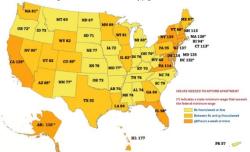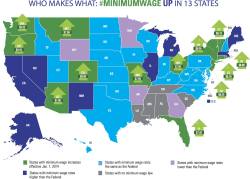Monthly Archives: October 2014
 Apparently, Connecticut’s response to the public school shooting is to target homeschoolers.
Apparently, Connecticut’s response to the public school shooting is to target homeschoolers.
Christopher Howse is proud to be a member of the UK’s Dull Men Club.
How the feds set up a fake facebook account in a woman’s name in the name of law enforcement. It reminds me a bit of my friend tracking his ex-girlfriend by setting up a MySpace account in an acquaintance’s name (and immediately getting over here, realizing how banal she was).
I barely use flavoring, but attempts to ban flavored ecigarettes make me want to bang my head against the wall. if you’re worried about ecigarettes as a “gateway” (which I’m not, but if I were…) then why in tarnation do you want to insist that ecigarettes taste as much like real cigarettes as possible?
Paul Krugman, among others, has been trying to argue that mitigating climate change is not only within reach, but surprisingly affordable. David Roberts explains that this is simply not the case, and it would actually require significant sacrifices. {link via Dan Miller}
After a nerve-cell transplant, a paralyzed man with a severed spinal cord is walking again.
The Democratic nominee for Governor of Texas might just be a Karl Rove plant.
A couple of women in Maryland almost manage to steal six houses.
Roughly 90% of babies with Down Syndrome are aborted. Perhaps because loving kids like that is a waste. Relatedly, Jonathan Coppage argues that eugenics is build into the health-obsessed West.
Infoworld looks at seven myths surrounding programming.
A panda in China figured out that it pays to fake being pregnant.
David Frum is one of the leading voices against “comprehensive immigration reform” I listen to. Here he explains why he became disillusioned with the arguments of immigration reformers.
BusinessWeek has a good piece on the inconvenient intersection between toll roads and rental cars. Where some might see inconvenience, rental companies see profits:
Rental companies don’t absorb the cost of tolls. Instead, they typically offer customers two options: paying a flat daily fee upfront to lease a transponder, or paying administrative fees of as much as $25 for each unpaid toll to the rental company, plus anything owed to the state. Both greatly inflate the cost of tolls for car renters.
That’s prompted demands by irate renters for states to intervene. “I’m angry beyond belief and can’t even imagine coming back to your state,” Roxanna Usher of Redwood Valley, Calif., wrote in a Jan. 13 complaint to Florida’s attorney general after Dollar Rent a Car billed her $30 in administrative fees for two unpaid tolls totaling just $2.74. “It’s disgusting what you’re doing to tourists.” Usher’s is among nearly 100 complaints received by Florida’s attorney general in the past 18 months from rental car customers.
The fees have led to lawsuits against rental car chains, including a suit filed against Dollar earlier this year by a Florida couple, Stephen and Anne Sallee, who rented a car in Dallas in November 2013 and got hit with $60 in fees for $4.70 in unpaid tolls. “Dollar’s charge is actually not an administrative fee; it’s a veiled, mischaracterized, and undisclosed profit center” that helps Dollar advertise low daily rental rates for their cars, the couple claim in their suit, which was filed in U.S. District Court in Tulsa. They’re seeking class-action certification for other Dollar customers assessed with similar charges. “Dollar prides itself on complying with all laws,” Paula Rivera, a spokeswoman for Dollar’s parent company, Hertz Global Holdings (HTZ), wrote in an e-mail. “We deny allegations that the company sells customers products they don’t want, and we intend to defend the case referenced vigorously.”
And this is why we can’t have nice things. Or, rather, why we can’t leave companies to their own devices when it comes to how to make a profit. Moneytraps, which I would define as a company’s ability to make a profit based on services uneasily avoided, rather than particularly desired. In an airline context, I consider luggage fees to be legitimate, but $200 charges on not-last-minute changed flights to be a moneytrap. In the banking context, it’s overdraft fees. In the rental car context, it’s gas refilling policies and… this.
It seems ridiculous that we should have to regulate what kind of administrative fees that rental agencies can charge, but when they use moneytraps like this for profit centers, outside intervention does start to become justified.
To be fair, the market itself may sort this out. The last time I was in Colosse, we rented a car that had a transponder in it for no fee if we didn’t use it, and a flat $2 (plus expenses) if we did. They made some money off of it, but not an unreasonable amount. Unfortunately, a lot of people really are fixated on the price tag, so a company like Dollar can advertise really low rates while making their profits off moneytraps.
The government itself shoulders some of the blame, in this case, and could potentially resolve the issue without any regulation at all. But the government, too, has incentives for people to drive through EZ-Tag lanes without having a tag. I was recently flagged for having gotten in the wrong lane, racking up a $4 in tolls… and $50 in administrative charges. No rental company involved.
Exacerbating the situation is that tag-only roads are becoming increasingly common. Where there is no toll booth and so if you don’t have a tag, you’re stuck. My view is that when states start doing this, they need to be really careful about either (a) offering tags at little or no cost, or (b) having cost-appropriate administrative fees for people who don’t have them.
The end result of our $54 bill was that Clancy and I finally decided to get EZ-Tags. Which a part of us resents, because as far as we were concerned, we’re willing to stop and pay a toll. But the cost of the tags are reasonable, in our state, and we’ll save money simply by not making errors.
I was actually pretty excited about our next trip to the airport, where we are most likely to get in trouble as far as tolls are concerns. The upside to resigning ourselves to the tags is that we’d be able to sweep right through the toll booths. Then we moved, and now the quickest routes to the main airport we use no longer require tolls anyway.
My Samsung Galaxy Note 4 arrived today. I am officially a phablet user.
This is the first phone that my hand can’t reach the upper-right of the screen. This has proven, thus far, to be less of an inconvenience than I had feared. I have to re-evaluate where I put things on the screen, which fortunately I have the ability to do. The only place it’s turned out to be a problem is that some apps put menu options up there.
I am rootless, which means that this is a problem. However, Google plans on addressing it for the next Android release. I have a workaround in the meantime.
I’m mostly looking forward to having 3GB of RAM. I was really hoping it would be 4,
As is often the case, there have been some compatibility issues with software that I use. I can’t use Astroplayer anymore (my backup all-media player), and neither Nova Launcher nor Holo Launcher work with it yet. So now I use Apex Launcher. All of which are very similar. Which on the one hand makes one think “What use is it to have all of these identical launchers?” and the answer is “Because when one doesn’t work, another does!”
Unfortunately, it didn’t fix some of the Bluetooth problems I had with the previous device. Somewhere in between the S3 and S5 they inserted what I believe is a battery-saving feature (a laudible goal) that turns of AVRCP (the part of a bluetooth that lets you pause and restart media).
When is somebody going to come up with the three-camera smartphone? Most come with a camera in front, and a camera in back. But I think two cameras are needed in back. There are far, far too many vertical videos on the Internet. Here’s one of a dog so excited to see its extant owner that it passed out:
Had a dream that we hired a yard man who turned out to be Phil Collins. Ever since I have had I Can’t Dance sick in my head. The dream also involved a stash of cash and some bad guys who wanted to take it from me. I shot a couple of them dead. I do not know where Phil Collins was at this time.
And lastly, here is former Hit Coffee reader and commenter Larry, talking about a proposed gun law in Washington State:
Last year, a clerk failed to properly transcribe the VIN on the Camry. So we got the title for the Forester, but never got the one for the Camry. They sent us a form to fill out where we’d have a police officer verify the number of the car, but that fell through the tracks. It was important, but never urgent.
This year, I went to the DMV to turn in the form, and it created a problem. (Which would be, it turned out, one of several problems.)
Basically, the issue was this:
1) Without the VIN, the car was not officially registered.
2) Registration was required before they could accept the VIN verification form.
3) The car could not be registered without an accepted VIN verification form.
You can prove you have (unofficial?) registration by giving them the temporary registration card, but we didn’t have that. The lady at the DMV was actually skeptical there was any way out of this that didn’t involve buying a new car.
Other problems included the fact that the registration had expired on the Forester (I thought I had until the end of the month, but it turned out that it was the beginning) and that I didn’t have proof of payment of the property tax. That last one confused me a great deal, because we didn’t have to have anything like that the previous year. Further, how did they know we didn’t rent? To add on top of all of this, we moved without informing the DMV. I didn’t want to complicate matters by bringing that up.
It turned out that the state levies property taxes on vehicles. This isn’t too far from what Arapaho did, but in Arapaho they basically altered the cost of registration to meet (to some degree) the value of the vehicle. Here, you apparently have to make a separate trip to the Second County Tax Assessor. I went to the county courthouse to the tax collector’s office, and was told that I needed to go to the Assessor’s office. I went to the Assessor’s office, only to find out I had to go to the second assessor, because the primary assessor only dealt with land property. The Second Assessor was a little cubby hole in the back of the courthouse (metal detector and all).
Believe it or not, I found all of this easier than dealing with the DMV. The Second Assessor couldn’t give me a tax document without proof of registration, but when I explained the situation she did anyway.
When we got back to the DMV, we got a different lady who was much more helpful. Actually, she wasn’t helpful at all, but since it was a complicated situation and she had just started the job two days before, she took us to someone who could help us. Within an hour, everything had been settled. She basically called the person in the state capital who had transcribed the VIN number incorrectly, and they quietly corrected it, with everything quietly falling into place.
Adam Ozimek has an idea for Republicans:
Here’s what they should do: offer a compromise to Democrats that passes a $15 federal minimum wage in exchange for cutting corporate tax rates.
Why would this deal represent a win for Republicans rather than just a compromise? Because regardless of the support it generates among fast food protestors and advocates, a $15 minimum wage would simply be untenable. The increase in unemployment would be swift and significant, and Democrats would be unable to deny it. The $15 minimum wage would be repealed very quickly in a bipartisan consensus.
Well, that’s certainly putting his money (or policy) where his mouth is, in terms of his opposition to raising the minimum wage.
The problem I see with the bargain is this: The effects of raising the minimum wage would be pretty unequally distributed. As would nixing the corporate income tax, though the effects there are harder to lay out.
 High-wage, high-cost places would likely not feel the increased minimum wage nearly as much. Nowhere would it be less felt, for example, in Western Dakota. After that, you’d be looking at New York City, San Francisco, Seattle, DC and other Democratic strongholds where you can afford to raise the minimum wage somewhat because (a) basement wages are higher to begin with, (b) there is more money flying around, and (c) it’s more justifiable there because of the cost of living.
High-wage, high-cost places would likely not feel the increased minimum wage nearly as much. Nowhere would it be less felt, for example, in Western Dakota. After that, you’d be looking at New York City, San Francisco, Seattle, DC and other Democratic strongholds where you can afford to raise the minimum wage somewhat because (a) basement wages are higher to begin with, (b) there is more money flying around, and (c) it’s more justifiable there because of the cost of living.
This is why I don’t have any objections – or predict much in the way of negative consequences – when high-cost cities choose to increase their minimum wage. To the extent that we’re going to have a minimum wage, it makes sense that the minimum wage have some sort of relationship to purchasing power.
But that’s also why I am critical of the likely consequences of a state-wide or nation-wide bump. If you raise the minimum wage in Washington, you’re raising it in Seattle and you’re putting Eastern Washington at a distinct disadvantage. There’s less money out there to pay people $10-15/hr, and cities like Pullman would be at a disadvantage compared to cities like Moscow, right across the Idaho border.
 You can get rid of the state line problem by raising it nationally, of course, but the disparities become more stark. Having the same minimum wage in Mississippi as in San Francisco makes little sense. The positive effects are more likely to hit the latter, the negative effects more likely to hit the former.
You can get rid of the state line problem by raising it nationally, of course, but the disparities become more stark. Having the same minimum wage in Mississippi as in San Francisco makes little sense. The positive effects are more likely to hit the latter, the negative effects more likely to hit the former.
That’s a policy problem, but it’s also a political one. If the positive effects are felt primarily by the constituents of one party, and the negative effects felt primarily by the other, it’s hard to get that bipartisan consensus to repeal it. At the least, there would likely be enough support for it to hold the minimum wage where it is while inflation catches up to it. Which leaves some states better off and some states worse off (and I think this is an optimistic assessment, when we’re talking about $15/hr), if you represent the latter, you’re not doing your job if you sign on to this bargain. Especially when (by my seat-of-the-pants assessment) the benefits of the corporate tax elimination would primarily go to wealthy and blue states (and Texas).
The employment premium for going to a for-profit college may be so bad (PDF) so as to not demonstrate any advantage over those who did not attend at all. Elite colleges, on the other hand, worth it.
Fargo Uber Alles! The Gateway to the West has been named the best small city for businesses and careers. (For anyone wanting to attribute that to the oil boom, just so you know it’s on the other side of the state. Here are some other booming towns and cities.
There’s an old saying that when an unfaithful man marries his mistress it creates a job opening. Turns out, it’s true.
The Economist looks at the costs of foreign aid, to the recipient nation.
Joshua Neuman said no to drugs, because of this comic book. Trainspotting and Requiem of a Dream both had indentations on my views of the subject.
Daewoo Shipbuilding and Marine Engineering is constructing and employing cyborgs. Well, more Iron Man than cyborg, but cool all the same. Cooler or less cool than cyborg moths, I’m not sure.
Coming soon to an eaterie near you: Cricketburgers! Or bugburgers. Or something.
Microsoft considered – and hasn’t ruled out – renaming Internet Explorer to escape its sketchy reputation.
The next big name in Smartphones may be… Lenovo! The prospect excited me a lot more before I discovered what Lenovo did to the Thinkpad line.
China bet big on Shale Gas, and it hasn’t worked out.
Stacking cells: A possible new innovation in solar energy could make it as cheap as natural gas.
Arguably, food trucks are safer than restaurants.
Does the college define its students, or do students define the college?
Shinzo Abe is standing up to China and Korea… but not the United States.
NASA and BYU are working on origami solar panels.
Good to know: Fictional products cannot violate trademarks.
Moscow has an army of online trolls at its command. Daisy Sindelar wonders how much they matter.
It’s kind of funny when conservatives are saying “OMG what about the birds!” and liberals are saying “They’re just birds, get over it.
Drill, Baby Drill! The benefits of rote memorization in math.
Clancy had a patient that required consultation with the Poison Control Center. I asked her exactly what Poison Control was (A federal agency? A part of the CDC? State agencies?). She said she didn’t know, but that no matter where you were, you always called a single number. She remembered the number because of a song she was taught in medical school.
One of the things we do to pacify and entertain Lain is music videos. She loves the Animaniacs. In particular, she likes this song:
When I was in the fourth grade, we had a presentation that had a song that included all fifty states, in alphabetical order. Unlike Wakko’s song, it didn’t include capitals. To this day, I can recite all fifty states in under thirty seconds. It’s entirely due to that song. This is the song I memorized (though I didn’t memorize the intro):
I managed to get it down to 19 seconds
When putting Lain to sleep, I often use They Might Be Giants songs that I have the lyrics memorized to. Maybe I should throw this one into the mix.
 Gordon Lightfoot participated in a Reddit Ask Me Anything.
Gordon Lightfoot participated in a Reddit Ask Me Anything.
A peek into the sinister world of debt collection. It’s a very gripping story.
Astronauts can teach us about sleep. Also, the smell of space.
Britain has a phantom alien cat problem. Wait. What?
I mumbled and grumbled with the USB port came out. What, another one? But I was sold on the ability to hot plug in on a computer that was already on. Even so, I had no idea of its staying power. ArsTechnica gives us the history of the USB, the port that replaced just about everything.
A gripping World War II tale of a chicken farmer, a pair of princesses, and twenty-seven imaginary spies.
Dubai knows that the oil wells will run dry. They’re already working on their next phase.
Julian Morris presents the case for plastic bags.
The link between poverty and crime may have been overestimated. Or, alternately, may be purely a function of where a family started out when the first child was born.
Officers in California have allegedly been using official resources to screen online dates. Once upon a time, it was really easy to get DMV information online. I actually used it regularly (it contained height-weight measurements).
Once upon a time, I would have been thrilled at the challenge of The World’s Spiciest Bowl of Noodles. That was before the Ghost Pepper incident.
The stated reasons for increasing H1B visas are not matching up with reality, at the moment.
How men and women approach posted job requirements. It was only chance that I didn’t approach it the way that women seem to, and decided to just kinda go for it. It’s definitely something I hope to pass on to Lain.
 Remnants of Dixie remain in Brazil, where Conferederate expatriates set up camp after the Civil War. Here’s a video.
Remnants of Dixie remain in Brazil, where Conferederate expatriates set up camp after the Civil War. Here’s a video.
Chinese movie theaters are experimenting with text messages on the screen to create a social viewing experience.
Is idiocracy upon us? The Flynn Effect is allegedly in reverse.
Antarctica may not be as lifeless as we think.
New Jersey plans to test the transportation of the future: solar powered commuting pods!
Halting the depletion of the Ozone layer is considered one of environmentalism’s greatest recent accomplishments. But not everyone got the memo.
A good idea: In Delaware, you can bequeath your Facebook account.
Slow down… for the dragonflies!
What potential future Detroits can learn from the fall of Detroit.
Urban heat islands are cooking our cities. Summer differentials of seven degrees for Las Vegas, six for Albuquerque, five for Portland, four for Seattle.
Some fluoride in the water is good, but the experience in Maine may be that too much fluoride is very, very bad.
Japan has declared war! Against astronaut litter.
Saturn moon Enceladus has a sea about the size of Lake Superior, now a top candidate for life.
Andrew Lilico thinks that instead of spending $3,000,000,000 mitigating climate change, we should go to Mars. Mars One is still working on getting us there.
Fraser Nelson argues that Britain is poorer than every US state but Mississippi. No, actually, says Tim Worstall, the poorest. I comment on it here.
